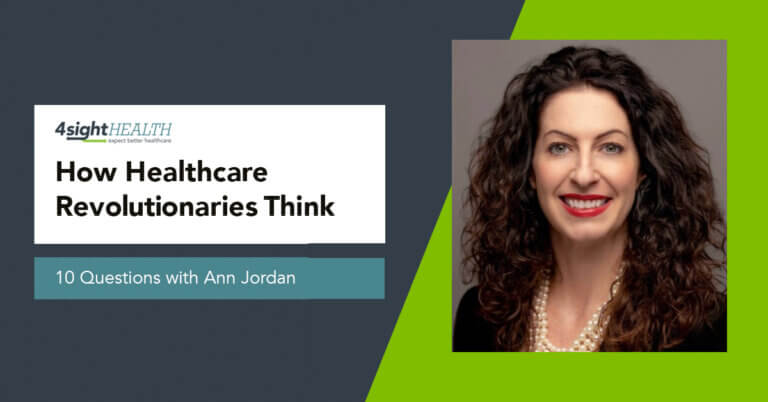October 18, 2022

Burda on Healthcare: 10 Things Doctors Think
I’m not a doctor, and I don’t even play one on TV. But I am interested in what doctors think because as doctors go, so goes the healthcare system in the U.S. I’ve said this many times before. The system isn’t going anywhere unless it gets doctors on board — or at least out of the way.
Here are 10 things doctors think based on five new reports, research and surveys. If anything, they make good data points for PowerPoint presentations.
51% of doctors say they believe healthcare access is a top social issue
That’s according to a new Medscape report: Physicians Rate Healthcare Access: Ongoing Problem for Patients. The report is based on a Medscape survey of 2,340 physicians in 29 medical specialties.
21% of doctors say they believe a single-payer system that guarantees healthcare access for all is the best healthcare system for the U.S.
That’s according to the same Medscape report and survey. In other words, one out of every five physicians you know thinks that we should have the same type of healthcare system as they do in Canada and the United Kingdom.
38.8% of hospitalists are satisfied with their EHR systems
That’s according to a KLAS Research report: Exploring EHR Satisfaction by Provider Specialty. The report is based on a survey of physicians in 26 medical specialties with a minimum of 1,000 survey respondents per specialty. Hospitalists were the most satisfied with their EHR systems of any medical specialty.
8.4% of ophthalmologists are satisfied with their EHR systems
Ophthalmologists are the least satisfied with their EHR systems of any medical specialty included in the KLAS Research report. Makes you wonder if promises of a new or better EHR system is one reason that so many ophthalmology practices are selling out to private equity firms.
62.8% of doctors say they experienced at least one burnout symptom in 2021
That’s according to a study published in Mayo Clinical Proceedings: Changes in Burnout and Satisfaction With Work-Life Integration in Physicians Over the First 2 Years of the COVID-19 Pandemic. The report is based on a survey of 2,440 physicians. Mayo Researchers defined burnout as experiencing emotional exhaustion and/or depersonalization. That’s up from 38.2% of physicians in 2020.
 57.1% of doctors say they would choose to become a physician again
57.1% of doctors say they would choose to become a physician again
That’s according to the same study in Mayo Clinical Proceedings. That’s down from 72.2% in 2020. That big drop in career satisfaction doesn’t bode well for the adequacy of physician manpower in the future. Think early retirement, career changes and discouraging others from going into medicine.
21% of doctors say they consume alcohol or controlled substances multiple times per day
That’s according to a report from All Points North: 2022 State of Mental Health: American Healthcare Workers. The report is based on a survey of 1,000 healthcare workers aged 22 or older. All Points North is a “whole-person health” management company based in Edwards, Colo., so take the survey results at face value.
14% of doctors say they consume alcohol or controlled substances at work 
That would mean one in seven physicians you come in contact with during an episode of care is not sober. Frankly, that seems a little high to me. But even if the percentage is half that, it’s still pretty scary from a patient safety point of view.
68% of doctors say they now give their patients access to their own clinical data
That’s according to a report from the American Medical Association: Physicians’ Motivations and Key Requirements for Adopting Digital Health Adoption and attitudinal shifts from 2016 to 2022. The report is based on a survey of 1,300 physician respondents, evenly split between primary-care physicians and medical specialists.
 44% of doctors say the use of digital health technologies gives them a “definite” advantage in their ability to provide patient care
44% of doctors say the use of digital health technologies gives them a “definite” advantage in their ability to provide patient care
That’s according to the same AMA survey. That figure is up from 31% six years earlier in 2016, when the AMA conducted a similar survey. The change shows that more physicians are seeing the value in digital health tools that improve their ability to optimize care for their patients. That’s an important lesson for digital health innovators, start-ups, entrepreneurs and investors.
When you add all these numbers and percentages up, what does it mean? I think they mean that most doctors are struggling with how the healthcare system is changing and lessening their authority, control and independence and handing it over to computers, corporations and consumers. It’s similar to what happened to the journalism profession.
All I can say is, it was a good run.
If you’d like to learn more about what doctors think and where the medical profession is going, please check out “Past, Present and Future: Where Are Doctors Headed?” on 4sighthealth.com.
Thanks for reading.





